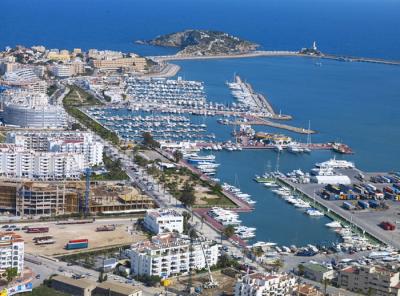The Council of Ministers has approved this Friday the Draft of Law of Maritime Navigation, which puts an end to the contradictions between the international agreements and the Spanish normative hailing back from the last century. Amongst other issues, the law determines the responsibility of those involved in marine traffic, establishes measures to avoid marine pollution and illegal immigration, details the public liability in case of an accident, and improves the protection of the Spanish underwater heritage.
Thus this Draft of Law, which was presented in its preliminary form by the Minister of Justice Alberto Ruiz Gallardón to the Council of Ministers a year ago, updates the legislation regarding the sector of the navigation, standardises the legal system according to the International Maritime Law, provides legal certainty and reflects the current reality of the maritime transport. Additionally, it regulates the contracts for the use of the ships, fixes the conditions of the naval construction contracts and adds new elements to the sales contracts of the ships.
In particular, with accidents in mind, the text states that the “most important” tool against the contamination of the seas is the prevention, therefore it sets some restrictions for the reasons of security and maritime protection, like a better control of the ships that show serious deficiencies and risks for navigation, and specification of shelters in case of emergencies.
Besides, the regulation of the accidents will be carried out by referring to the agreements that rule these issues, in cases of boarding, serious malfunction, rescue, shipwrecked or sunken goods and public liability for contamination.
When it comes to public liability for contamination, the Draft of Law points out this is supplementary and additional to the rules specified in the International Agreement over public liability in case of damages due to contamination by hydrocarbon oils, of 1992 (CLC), in the International Agreement over constitution of an international fund for compensation of damages due to contamination by hydrocarbon oils (FUND) and in the International Agreement over public liability for damages due to contamination by hydrocarbon oils for fuel of the ships (BUNKERS 2001). In other words, the law will regulate only the cases, where the above mentioned agreements are not applicable.
Likewise, the aplication of the limitation is guaranteed regardless of the legal proceedings (civil, criminal, contentious-administrative) used to demand responsibility, including if responsibility is sought via the administrative route. This way, the responsibility for contamination is guaranteed. The rules of responsibility considered in the International Agreements are tied in the future Law to a specific legal process, in which the subject that seeks to take advantage of these rules, has a duty to set up in advance a limitation fund to guarantee the payment of corresponding compensations.
It should be clarified that the administrative responsibilities are regulated in the combined text of the Law of the State Ports and the Merchant Navy, while the criminal responsibilities are collected in the article 325 of the Penal Code, which categorizes the acts of contamination of the seas, including when they happen at sea.










